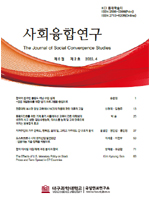학술논문
The Effects of U.S. Monetary Policy on Stock Prices and Term Spread in G7 Countries
이용수 60
- 영문명
- 발행기관
- 대구과학대학교 국방안보연구소
- 저자명
- 김경곤(Kim, Kyoung Gon)
- 간행물 정보
- 『사회융합연구』제6권 제2호, 83~94쪽, 전체 12쪽
- 주제분류
- 복합학 > 학제간연구
- 파일형태
- 발행일자
- 2022.04.30

국문 초록
본 연구는 지난 글로벌 금융위기를 통해 펜데믹 이후 본격화될 연준의 긴축적인 통화정책이 국제금융시장에 미칠 영향에 대한 교훈을 얻고자 한다. 이를 위해 미국의 통화정책이 G7 국가들의 주가와 장단기 금리차에 미치는 영향이 2007-2008 글로벌 금융위기 이후 변화하였는지를 분석하였다. 2001-2017년 기간의 월별 자료를 이용한 VECM(vector error correction model) 분석 결과, 금융위기 이전의 미국 연준의 예상하지 못한 긴축적인 통화정책은 G7 국가들의 주가 하락 및 장단기 금리차의 감소로 이어졌다. 그러나 금융위기 이후에 미국 연준의 통화 긴축은 G7 국가들의 주가 상승 및 장단기 금리차의 확대로 연결되었다. 팬데믹 이후에도 미국의 긴축적인 통화정책이 주식 및 채권 시장에 이와 유사한 영향을 미칠지에 대한 각국 중앙은행의 관심이 필요하다.
영문 초록
To learn lessons on how the Fed s monetary tightening after the pandemics would affect the global financial market, I examine whether the global transmission of U.S. monetary policy surprises to stock price indexes and term spreads in G7 economies changed after the 2007-2008 financial crisis. I estimate a vector error correction model using monthly data spanning 2001-2017. I find that monetary tightening induces a reduction in stock price indexes and term spreads before the crisis. This confirms the conventional view of the effects of monetary policy on stock and bond markets. However, an unanticipated tightening in U.S. monetary policy leads to an increase in stock price indexes and term spreads in the post-crisis period. This positive response is at odds with the conventional view. Central bankers should pay attention to whether the U.S. monetary tightening will have a similar effect on the stock and bond markets in the post-COVID era.
목차
1. Introduction
2. Background
3. Method
4. Results
5. Conclusion
키워드
해당간행물 수록 논문
참고문헌
최근 이용한 논문
교보eBook 첫 방문을 환영 합니다!

신규가입 혜택 지급이 완료 되었습니다.
바로 사용 가능한 교보e캐시 1,000원 (유효기간 7일)
지금 바로 교보eBook의 다양한 콘텐츠를 이용해 보세요!



